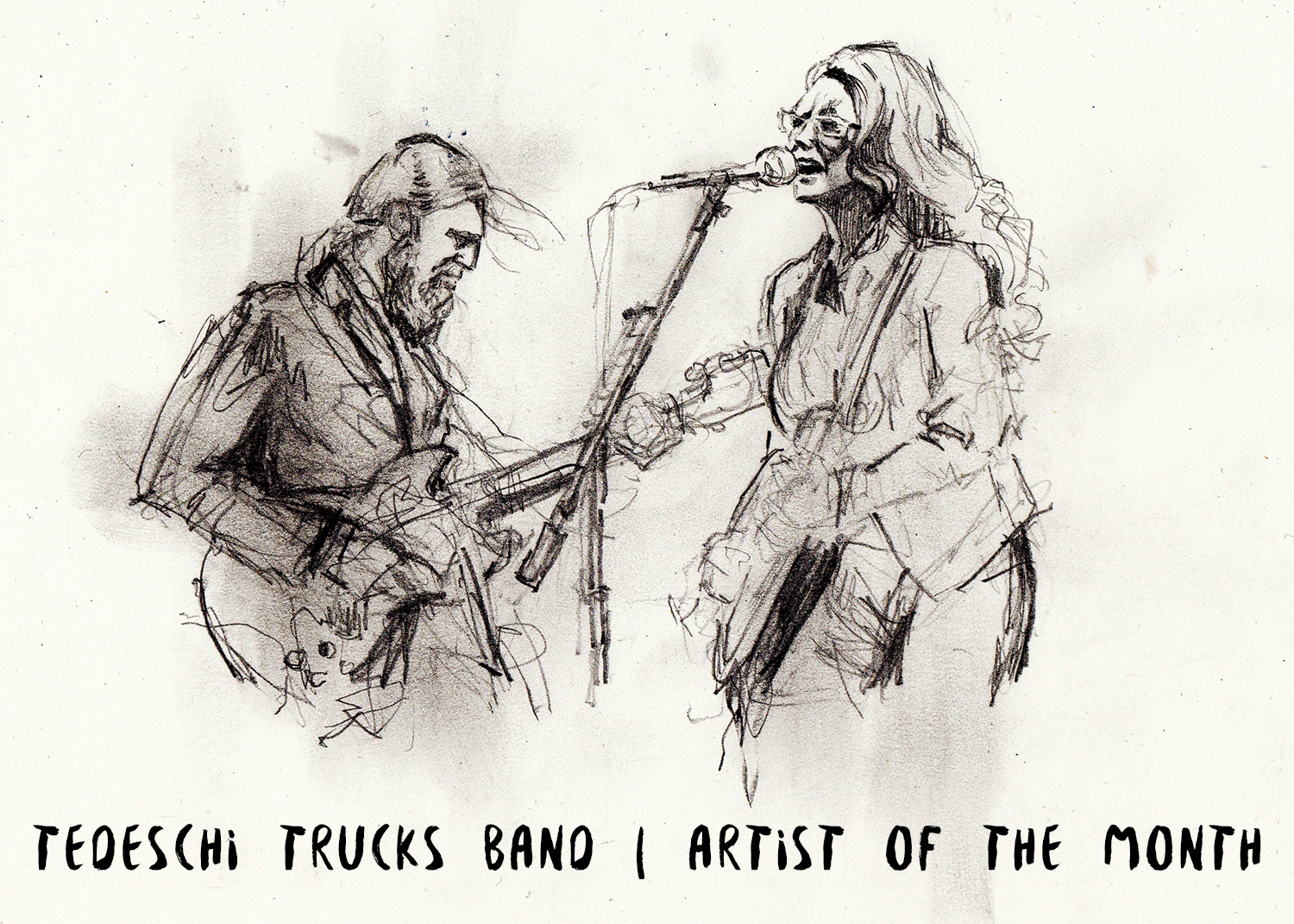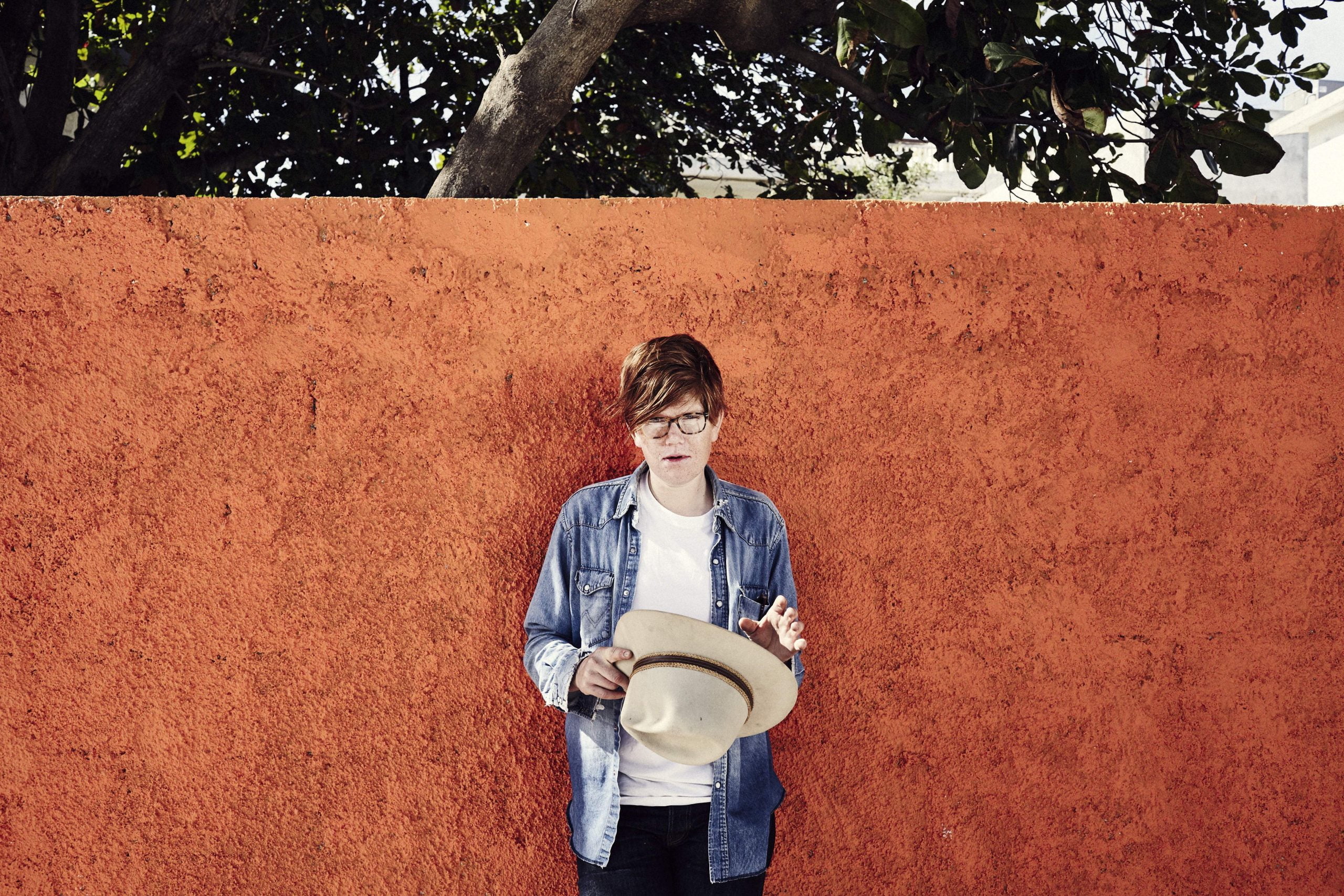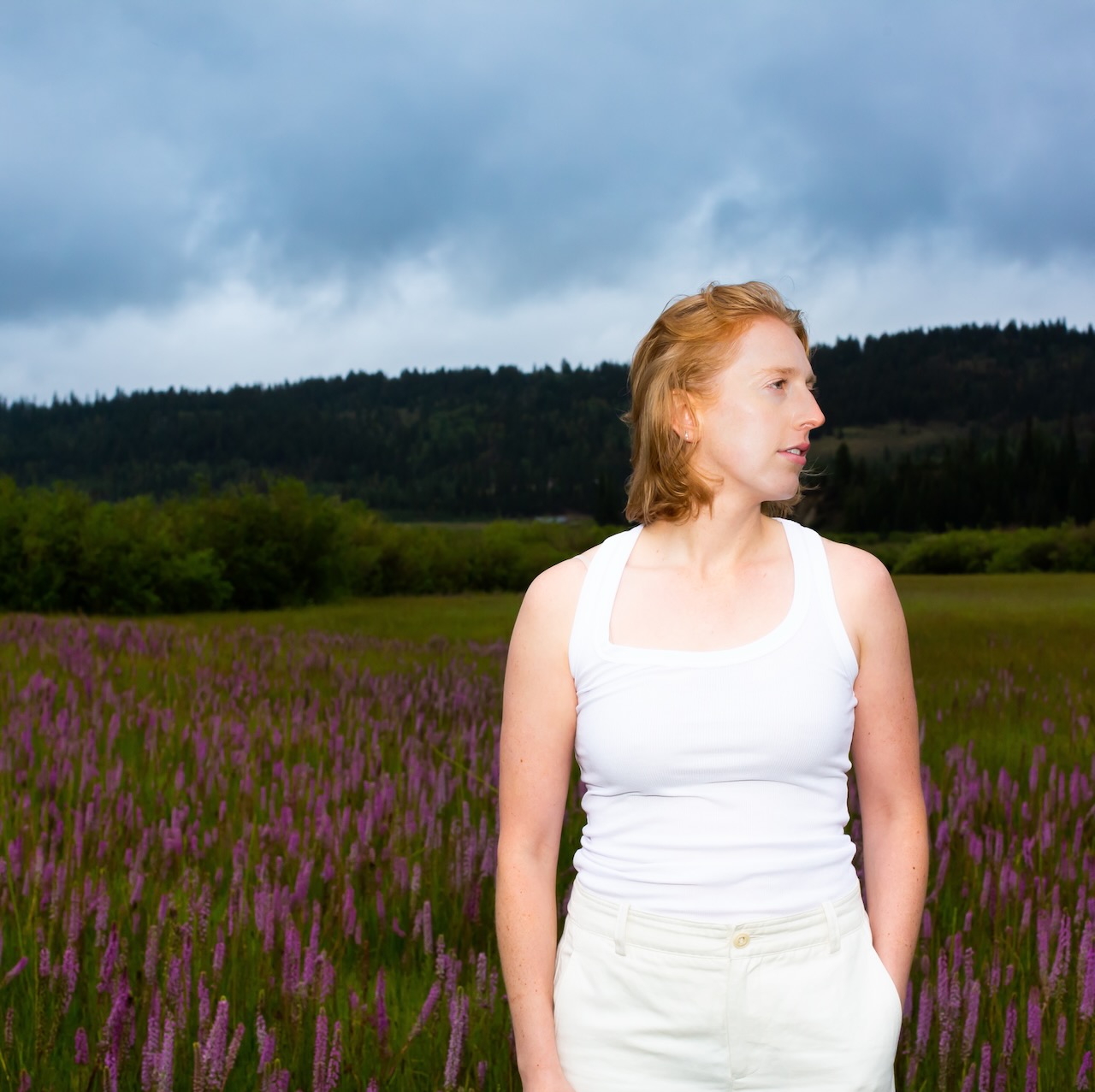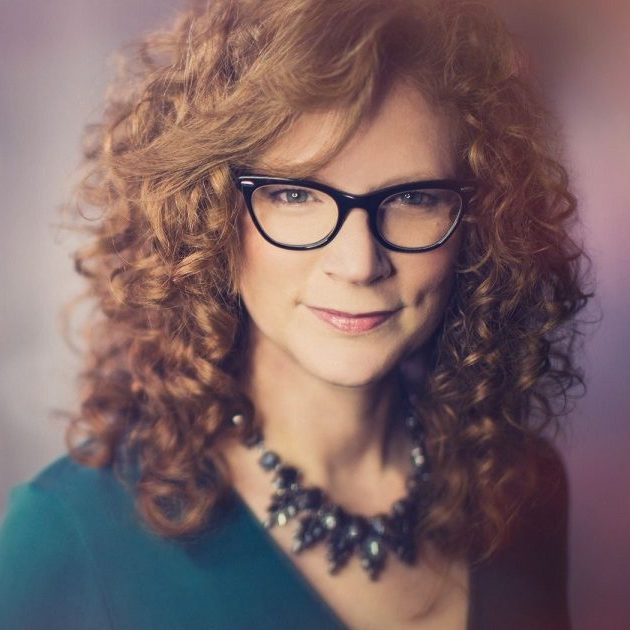Susan Tedeschi may stand in the center of the Tedeschi Trucks Band but she is quick to give ample credit to her fellow bandmates for setting the right tone on the bus and on the road. With a new album, Signs, she certainly shines as a vocalist and an instrumentalist — and that confidence comes through in conversation, too. Engaged with the world around her, she’s quick to talk about the need to evolve, the encouragement she gives and receives in the music, and the common thread that runs through all 12 members of the Grammy-winning ensemble.
Editor’s Note: Read the first part of our Artist of the Month interview with Derek Trucks. Both interviews were conducted before the death of band keyboardist Kofi Burbridge in February.
BGS: Listening to this record, it was like a reminder of why the word “band” is an important part of this project. On that first track, everybody has a moment – all the vocalists and the musicians. Why did “Signs, Hard Times” seem like the right song to lead this album?
Tedeschi: Basically for exactly what you just said. It’s letting everybody hear a little bit about who the band is. Also, there’s a lot going on right now. And also, there are a lot of obvious signs, whether it’s political or environmental, or just living. So it seemed to fit.
Do you all get into heavy conversations on the bus? There are some topical songs on this record. Does that carry over on the road?
Oh yeah, a lot. This is such an interesting time for me. I was born in 1970 so I’ve seen a lot of different presidents come and go, and a lot of different mindsets and people who think a certain way. And I just can’t believe that this is going on now, in 2019, almost 2020. I feel like, “Come on, people, we can do better than this. We can evolve.” I just feel like we need to evolve as a species. I feel like we’re not keeping up with technology, we’re not keeping up with science and facts. It’s people and their egos that are in power, that are running things and not using common sense. It just doesn’t make sense.
This album has some heavy songs, but there are also messages of encouragement. I’m thinking of songs like “Still Your Mind.” Even as you’re presenting that message to your audience, does it resonate with you as well? Kind of telling yourself to hang in there?
Yeah, that’s a song that Derek wrote. He’s a very Zen character in real life, so it makes sense that he would write that. He’s very good at steering the ship and being a great captain to all of us, and keeping us eyes-forward and moving ahead, and being positive and learning to breathe and take your time. The lyrics of that are really encouraging and positive.
And it started instrumentally. I think Kofi was playing some of the piano stuff at soundcheck and then Derek started playing some of that stuff and it formed organically. Derek started to write words to it and would bring pieces to me and ask, ‘What do you think of this?’ I would say, ‘Oh, that’s great!’ or ‘Maybe move these words around….’ But I tried not to do much because I wanted him to have that tune.
We try to do that a lot with each other. Derek, Mike Mattison and I write most of the songs, but Mike wrote a lot for this record. I mean, he is our scholar so we put him to work. He’s got ideas for days, and it’s amazing because it shows the range of his writing. He’s got a song like “Hard Case,” which is really light and fun, and then you have a song like “Strengthen What Remains,” which is really melancholy and sad, but at the same time, real hopeful. He also write “They Don’t Shine,” which sounds like a pop hit. He has a lot of a different angles in his writing.
I read that you started playing electric guitar in your 20s. Were you playing acoustic before that?
Yeah, I played acoustic growing up, starting at 14 or 15. My dad gave me one of his old Martins when I was about 15 for Christmas one year and I cried because I was so excited. I wrote a bunch of songs on that, and that’s when I first started songwriting. I didn’t play electric guitar until I was about 22 or 23. I had graduated college at 20, so I was out of college for a couple of years before I ever picked up a guitar, other than acoustic. I was playing acoustic at shows but it was more folky and songwriter-y kind of stuff.
Then I fell in love with blues. I had some friends who used to play at Johnny D’s in Somerville, Massachusetts, every Sunday for the blues jam. They needed singers so they asked me to come down, and then I realized, “Well, shoot, this would be a great place to try out playing the guitar.” There weren’t a lot of people there and it was pretty chill, so that’s what I did. I would go down and sing a few tunes, then I’d start playing rhythm. I never really soloed for the first couple of years on electric. I just wanted to learn to learn how to play rhythm and play along with stuff so I could try to accompany myself while singing.
I played along with a lot of Freddie King and Johnny Guitar Watson and Otis Rush and Magic Sam – and I fell in love with blues. I wore out Big Mama Thornton’s Hound Dog record and Koko Taylor and all sorts of stuff. I fell in love with it and I realized, “This is what I want to do. I want to be Freddie King and Johnny Guitar Watson!” It’s funny because I did a tour with Etta James and she asked me, “Who are your influences? Who do you want to be?” I said, “I want to be Johnny Guitar Watson.” And she said, “Ah! That’s who I want to be!” [Laughs]
For guitarists who look up to you, can you give advice on how to play tastefully?
Yeah! Well, for one, don’t play real loud unless you know what you’re doing. A lot of people plow through as loud as they can. It’s like, “What are you doing? That’s not music. You’ve got to blend with the people you’re playing with.” Another thing is to actually play along with records. I did that a lot and it was very beneficial. I can’t get over how much you can learn by playing along with records and listening, so that’s some pretty good advice.
Another thing is, try not to just play riffs. If you’re trying to solo, don’t be like, ‘Oh, I love this riff and I’m going to fit it in here.’ Work on stuff and practice stuff, and then have it be in your arsenal. But think about singing a melody, like you’re trying to tell a story, if you’re going to solo. I mean, I’m still learning how to do all this stuff. I am by no means a badass guitar player. I always have so much to learn, and it’s amazing being able to be in a band with Derek because he’s one of the best.
I just feel like there’s so much to learn on guitar. You can never learn it all. Don’t think you know it all because you don’t. And listen to people like Ralph Towner. They’ll blow your mind, like, “What the heck? That’s one guy playing all those parts?” So, I enjoy it but I know my limits and my strengths on guitar. But I feel like I can sing anything. I’ve been able to sing a lot of different styles of music. I feel very blessed that way. So I’m just learning to get proficient on guitar like I am vocally.
I like the fact that this band has black musicians and white musicians, older musicians and younger musicians, men and women – it looks like the world we live in, you know?
It is, absolutely.
You have 12 people working together every night. Is there a common thread that runs through all of you?
Yeah. We love each other. [Laughs] Everybody’s a good person and communicates well and cares about each other and has respect for each other. Musically we come from a bunch of different backgrounds but we all love blues and gospel and soul music. Some people love jazz, some people love country or bluegrass. There are a lot of different places that people are pulling from. Everybody’s educating everybody all the time in different areas, which is really cool.
And we just like hanging out. We like to go eat together, do laundry together. We’re on the road like a married couple – and we’re actually a married couple and they put up with us, so that’s pretty rad. It’s a really special band, and you know, there is something to that – where people come and see our band and see the variety up there and how we live together and travel the world together. People see us coming!

Photo credit: Shervin Laivez
Illustration: Zachary Johnson


